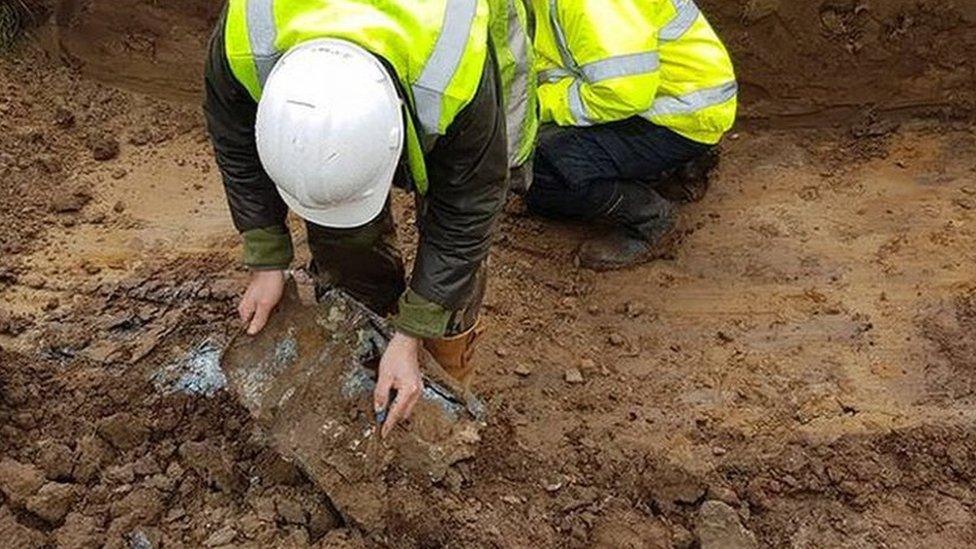World War Two aircraft unearthed by Foyle College students
- Published
Solving the mystery of an 80-year-old plane crash
Students in Londonderry are helping to solve the mystery around a World War Two RAF plane crash that happened almost 80 years ago.
Foyle College pupils and aviation archaeologists unearthed fragments of a Bristol Beaufort aircraft on Saturday.
The plane crashed outside Ballykelly, County Londonderry, on 30 April 1942, killing three crew members.
They were Flt Lt Richard Holdsworth, 31, Flt Sgt Stanley Chadwick and Flt Lt Duncan Livingstone, both 22.
The crew had been involved in a parachute training exercise.
Those involved with the dig plan to raise funds for a memorial to the men.
Foyle College aviation team are also planning to hold a commemoration service for the men and to travel to the RAF Museum in London to meet relatives of the crew.
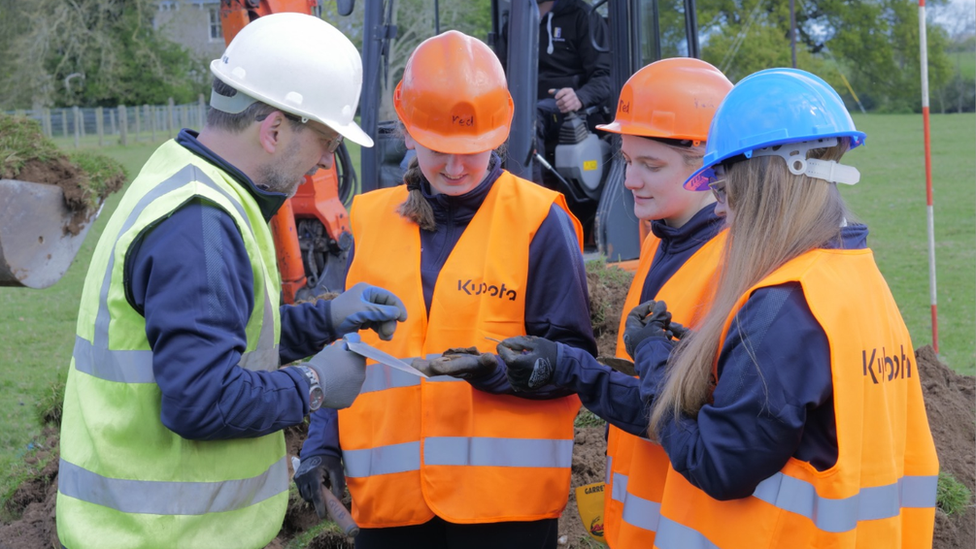
Pupils from Foyle College and a team of aviation archaeologists successfully unearthed fragments from a Coastal Command Bristol Beaufort aircraft
The excavation was commissioned by the Ministry of Defence and the Department for Communities (DfC) Historic Environment Division and was filmed for the BBC archaeology series Digging for Britain.
Using a variety of state of the art surveying and detecting equipment, the team spent almost 18 months finding the site and obtaining the relevant permissions.
It was only last summer that the exact spot of the aircraft was finally located, with anecdotal evidence initially placing the crash in an adjacent field.
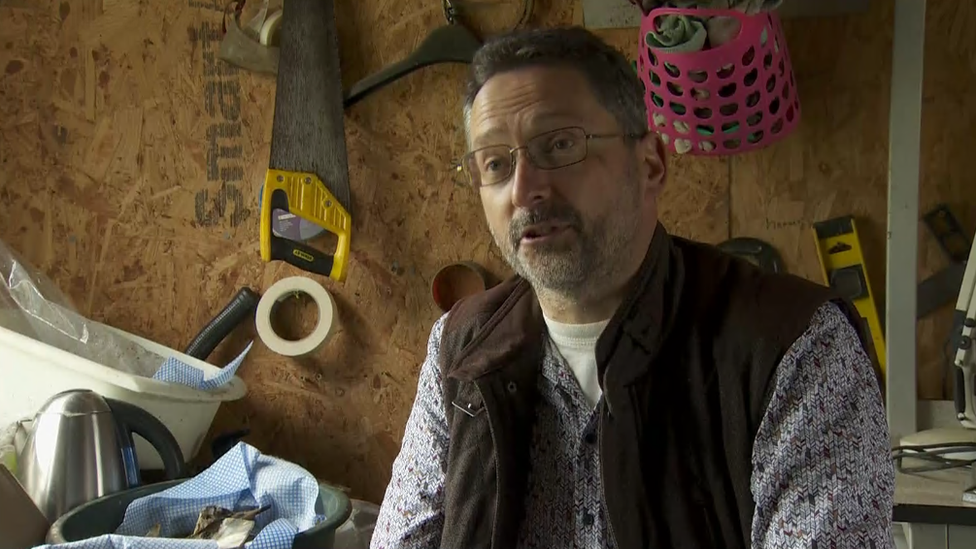
Dig organiser, Jonny McNee, says the dig will "lay to rest an awful lot of concerns that the family had for the last 80 years"
Dig organiser, Jonny McNee, said that the discovery will go some way in helping to piece together an 80-year-old mystery.
"It lays to rest an awful lot of concerns that the family had for the last 80 years," Mr McNee explained.
"It also tells us, from the sad poignant state that we found it in all burnt and shattered, just what happened on that fateful day when the aircraft crashed."
Mr McNee said organising the project during the Covid-19 pandemic was "a difficult task" but praised all those involved in ensuring the dig went ahead safely and legally.
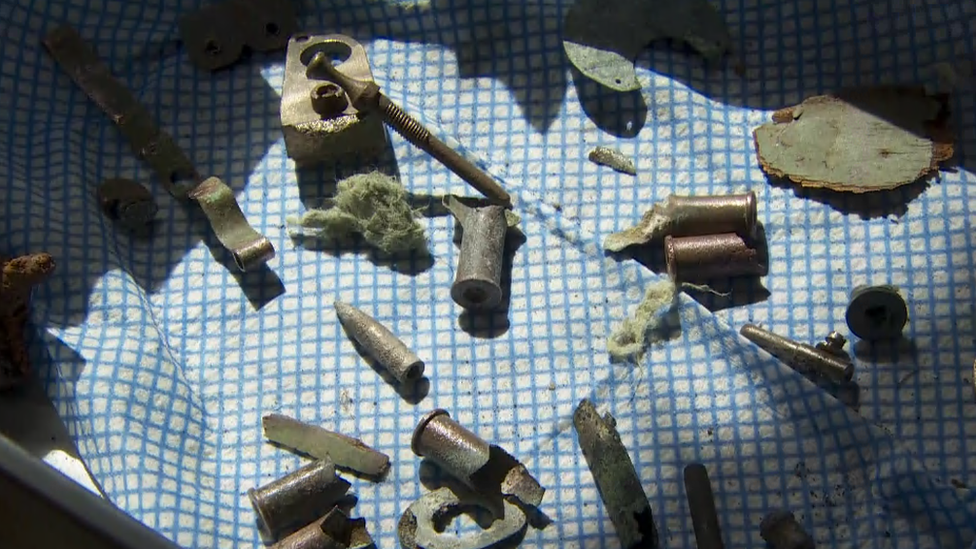
Fragments which were unearthed from the wreckage almost 80 years ago
Students involved with the project liaised with relatives of the crew to learn about their past and also kept family members informed of their progress.
"I loved getting involved in the science behind it," student Amy Spain told BBC News NI.
"We were using technology that we would never have had the opportunity to use, like the ground-penetrating radar," Ms Spain explained.
She added that "it's also really interesting to hear the family stories" and "hopefully it will bring them some more closure".
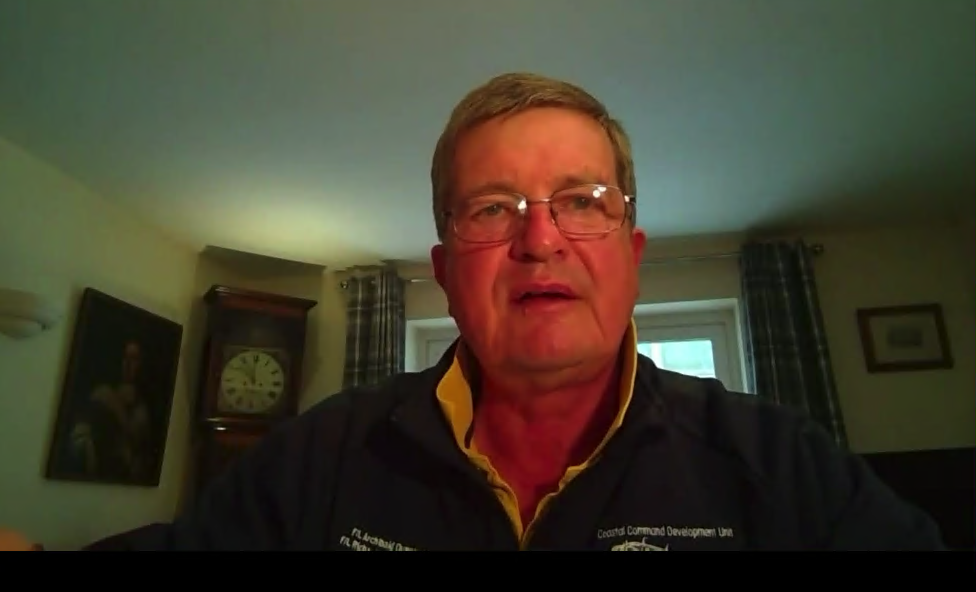
David Livingstone, who is the nephew of crewman Archibald Duncan Livingstone, says the students' work is "irreplacable"
David Livingstone, who is the nephew of crewman Archibald Duncan Livingstone, praised the young students for shedding new light on the tragic crash.
He said the young students' work was irreplaceable.
The Foyle College Aviation pupils are preparing the recovered artefacts for museum display.
- Published29 June 2019
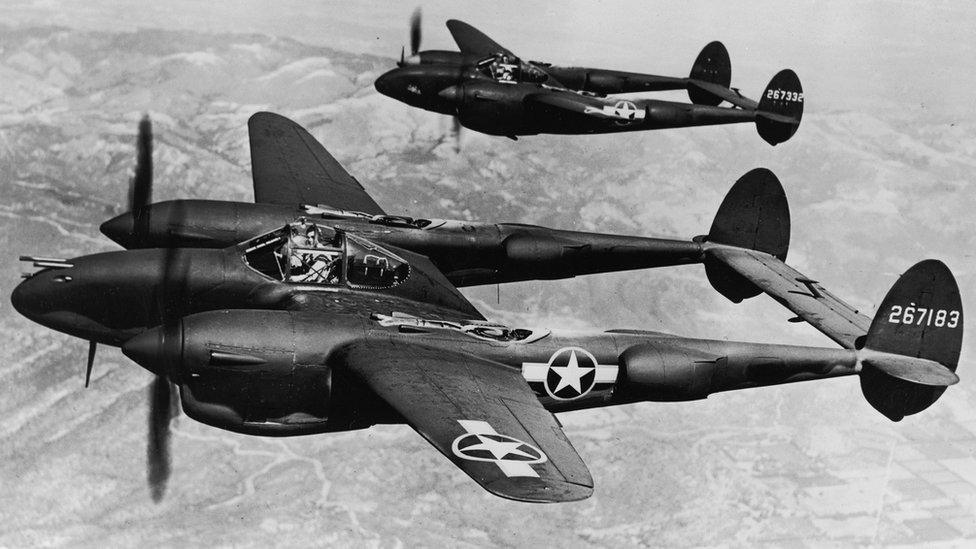
- Published6 August 2011
- Published13 May 2017
